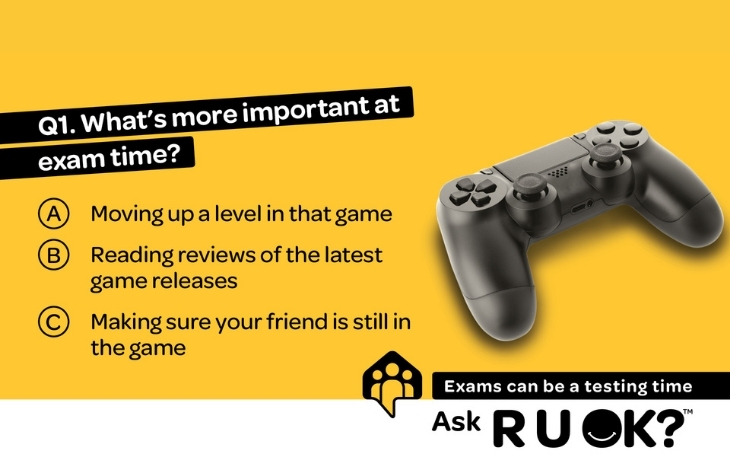This post is over three years old, the information may be outdated.
Life’s ups and downs happen to all of us.
Do you know how the people in your world are really feeling?
Thursday 9 September 2021 is R U OK? Day. On this day we’re reminded of the importance to regularly check in with others.
Why are conversations important?
The people in your world won’t always tell you if something’s troubling them so it’s important that you take the time to check in with friends, family, team mates and colleagues.
You might think “it’s none of my business” but R U OK? research has shown that conversations do make a difference. Of those who talked to someone about what’s troubling them:
- 80% said it made them feel more supported
- 75% felt more connected
- 72% felt it helped them feel better about themselves and their situation.
When we invest more time in our relationships, it can make it easier for people to speak up and access help early if they need it. So if you feel like something’s up with someone, trust that gut instinct and take the time to ask them how they’re going.
How to ask R U OK?
Before asking someone if they’re OK, be sure you’re prepared and ready to listen.
R U OK? offers the following advice:
Step 1: Ask R U OK?
- Pick your moment. Start the conversation at a time and in a place where you’ll both be comfortable.
- If they can’t talk when you approach them, arrange a better time with them.
- Be relaxed and friendly in your approach. Think about how you can ease into the conversation.
- If they don’t want to talk, let them know you’ll always be ready for them when they are or ask if there’s someone else they’d be more comfortable chatting to.
Step 2: Listen with an open mind
- Be prepared to listen. Don’t try to solve their problems right away.
- Have an open mind.
- Don’t rush them or interrupt. Let them speak in their own time.
- Encourage them to explain.
- Show you’ve listened by repeating back what you have heard and asking if you have understood them correctly.
Step 3: Encourage action
Once they’ve opened up, encourage them to access support or to do something that might lighten the load. You don’t have to have the answers or be able to offer professional health advice, but you can help them consider the next steps and actions they can take to manage their situation. Some good options might include talking to family, a trusted friend, their doctor or another appropriate health professional.
Step 4: Check in
- Remember to check in again to see how they’re doing. During the conversation, suggest a time that’s good for them: “Do you mind if I drop by again soon to see how you’re travelling?”
- If they haven’t done anything, be encouraging and remind them you’re always there if they need to chat.
- Understand that it can take time for someone to feel ready to seek professional help. Try to reinforce the benefits of seeking help and suggest different avenues.
- Stay in touch and be there for them. Genuine care and concern can make a real difference.
If you or someone you know is in a life-threatening situation, please call 000.
Charles Sturt resources
Charles Sturt has a range of resources and support services available, including an after-hours crisis line and counselling. Visit the Student Counselling page.
Mental Health First Aid training is also available to teach you simple, practical first aid skills for helping a family member, friend or co-worker who is experiencing mental health problems.










